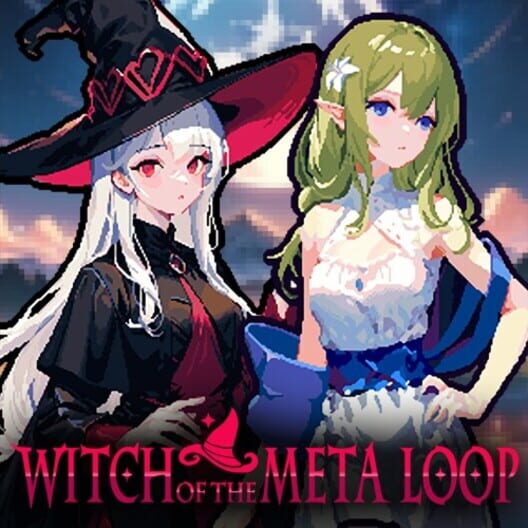Breaking: Meta AI Scientist & "Witch Hunt" In Academia Latest
Is the pursuit of intellectual rigor in academia facing an unprecedented threat? Recent statements from prominent figures suggest that a "witch hunt" atmosphere, potentially fueled by political motivations, is chilling academic discourse and endangering the careers of those in the field.
The echoes of concern resound from within the very institutions designed to foster free thought and open inquiry. Reports indicate a growing unease among academics, with some alleging that their professional standing and even their immigration status are at risk due to their research or opinions. This climate of apprehension raises fundamental questions about the health of intellectual freedom and the integrity of scientific progress. The implications are far-reaching, touching on the very foundations of innovation and the pursuit of knowledge. A deeper look is warranted.
Yann LeCun, the Vice President and Chief AI Scientist for Meta Platforms, is at the heart of this developing story. He has made some serious claims, accusing the former Trump administration of targeting academics. He suggested that some academics were at risk of losing their green cards based on their speech or research. These are not simple allegations; they strike at the core of the principles of academic freedom and the fair application of legal standards.
| Full Name: | Yann LeCun |
| Born: | July 8, 1960 (approximate) |
| Nationality: | French-American (dual citizenship) |
| Education: |
|
| Career: |
|
| Research Focus: | Deep learning, convolutional neural networks, computer vision, artificial intelligence |
| Key Contributions: |
|
| Awards and Recognition: |
|
| Controversies: | Publicly critical of certain AI safety initiatives, has voiced strong opinions on political matters. |
| Website Reference: | Meta AI Research |
The backdrop to this controversy is the rapid advancement of Artificial Intelligence. Tools like ChatGPT and Gemini, which has become very popular in assisting people with written, auditory, and visual tasks, are reshaping industries and altering how we interact with technology. This boom, of course, brings huge opportunities and challenges. It is a crucial moment for ethical considerations, intellectual property, and societal impact.
LeCun's accusations are not isolated incidents. They are amplified by the ongoing debate about the role of government and political influence in academia. Concerns about potential biases in AI development and the impact of AI on society are prominent topics. The scrutiny of the role of academics has increased.
The intersection of politics and academia has long been a contentious area. Historically, political ideologies and government policies have influenced research priorities, funding allocation, and even the hiring and promotion of academics. The fear of a "witch hunt" suggests a particularly acrimonious climate, where differing opinions or research findings are weaponized for political gain. Such an environment can have a crippling effect on the ability of researchers to pursue their work without fear of retribution, and would be in serious conflict with the First Amendment of the US Constitution.
The phrase "witch hunt" itself is loaded with historical baggage. It evokes the persecution of individuals based on unsubstantiated accusations, the suppression of dissent, and the erosion of due process. LeCun's usage of this term suggests a serious threat to the integrity of the academic community. It is a serious allegation that requires thorough investigation and critical assessment.
The focus on green cards is an essential element. The right to remain in a country based on merit, professional contribution, and legal compliance. Any attempt to revoke a green card based on an individual's intellectual output or freedom of expression could have a chilling effect, discouraging foreign academics from participating in the U.S. academic community. The potential for such actions raises fundamental questions about due process and the fair application of immigration laws.
Meanwhile, the rise of generative artificial intelligence (GenAI) has fueled both excitement and concern across academia and industry. The ability of GenAI tools to produce text, images, and other content with minimal human input has revolutionized many disciplines. These tools can assist in writing, editing, and creating documents, offering new possibilities for research, teaching, and creative work. However, the rapid proliferation of GenAI also presents challenges related to the validity of academic work, intellectual property, and the potential for misuse. As GenAI becomes ever more accessible, academics must address these issues to ensure their academic work remains ethically sound and academically strong.
The role of social media platforms in this evolving story is also important. Yann LeCun's statements were likely disseminated through these channels, potentially amplifying their reach and impact. Social media can serve as a vital platform for public discourse and the exchange of ideas. They also function as a space for misinformation and polarization. The speed with which information, both accurate and inaccurate, spreads across social media can further intensify public sentiment and exacerbate tensions in this context.
The situation also highlights the evolving relationship between major tech companies, such as Meta, and the academic world. Companies are increasingly investing in AI research. These relationships raise potential conflicts of interest, particularly when companies have commercial interests that may not align with the interests of academic freedom. The extent of the influence of technology companies on academic research warrants further investigation.
The allegations made by Yann LeCun demand thorough investigation. The consequences of these accusations, if accurate, could be devastating to the scientific enterprise. The current climate presents a complex interplay of technological advancements, political pressures, and ethical considerations. The long-term implications for the pursuit of knowledge will only be seen as time progresses.
The concerns raised by Yann LeCun and others, in general, are related to a broader debate about academic freedom, scientific integrity, and the role of government in shaping intellectual discourse. In the current climate, all parties must act responsibly and uphold the principles of open inquiry, transparency, and due process. This matter involves not only protecting individuals, but also defending the very values that allow academia to thrive. The ability to conduct open research, share ideas freely, and challenge established viewpoints is indispensable to the pursuit of knowledge and the progress of society.
The implications go far beyond just academia; the freedoms we cherish are at stake. The ability to think critically, to question the status quo, and to seek truth is fundamental to a free and open society. The accusations, which can't be proven right now, need serious attention, investigation and action. A transparent process of examination is required to address concerns and protect against any potential abuses of power.
The story is developing, and further developments are expected. It serves as a wake-up call to the need to protect the values that underpin the pursuit of knowledge. These principles and the need to ensure they endure for the good of society.
It is important to be informed of the different aspects to be fully aware of the current situation. Any form of investigation can be really helpful. Those involved, and any organization related to the topic, must take action to assure the well-being of those involved.

AI Art Sucy Manbavaran's Mad Scientist Outfit in "Little Witch

Witch of the Meta Loop

Cuộc săn lùng phù thủy